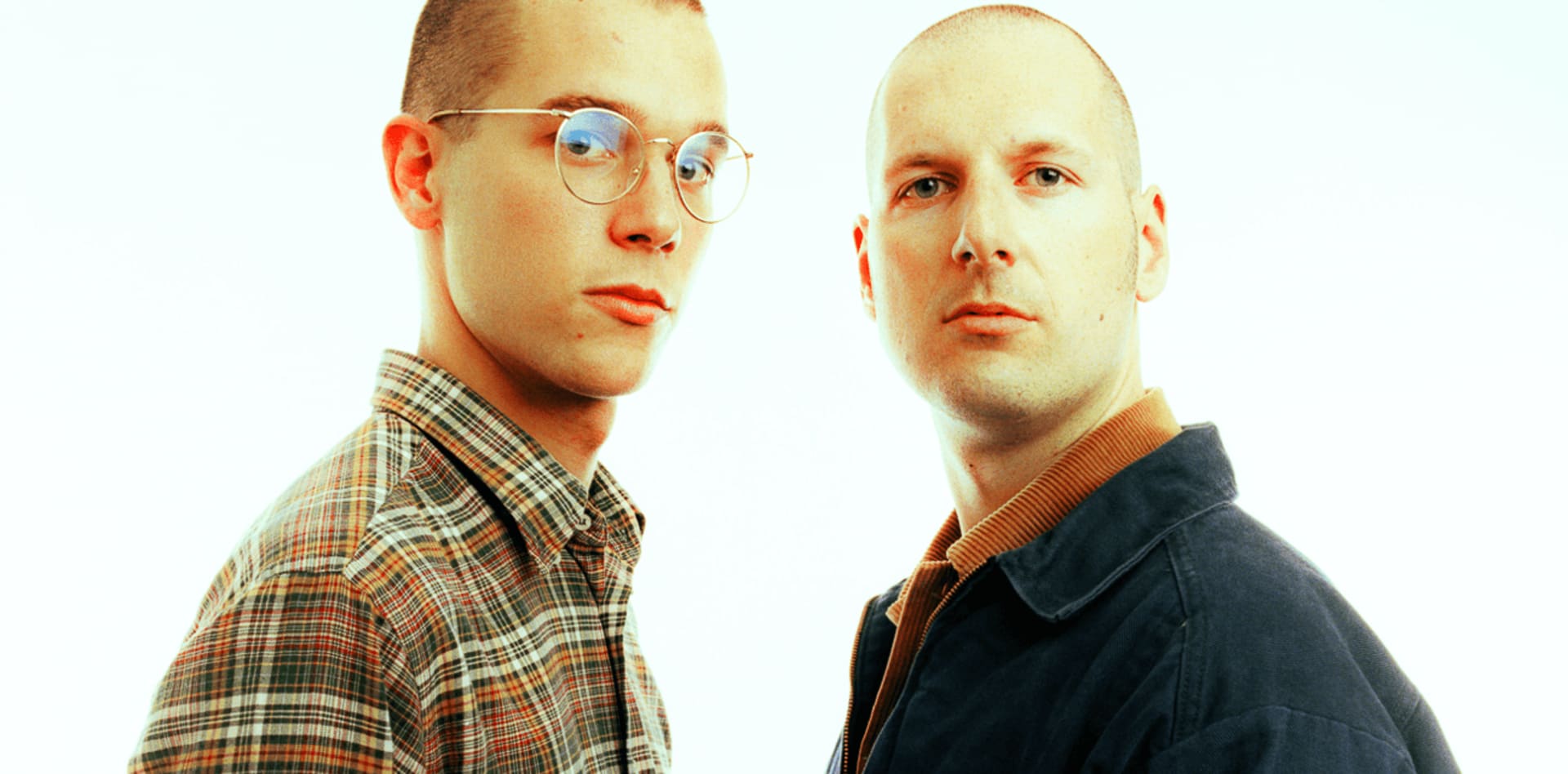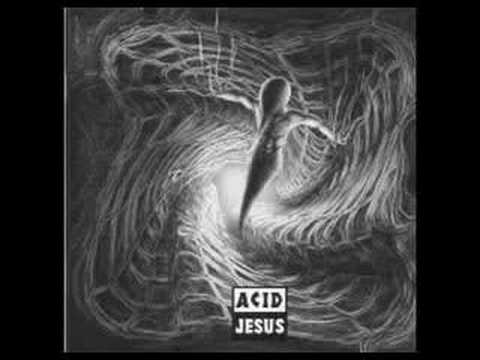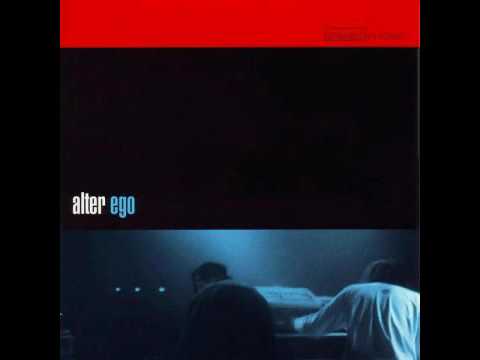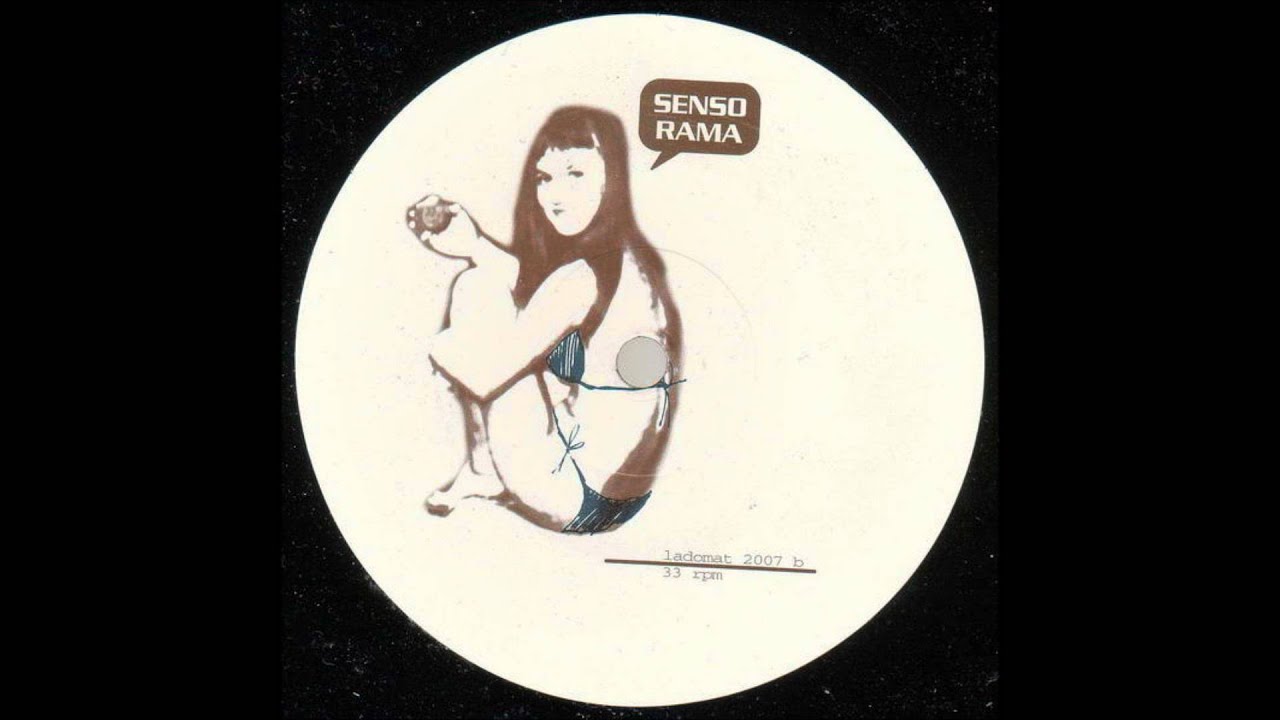
The Acid Jesus Story: Techno, Trance and Frankfurt’s ‘90s Scene
It could be easy to misinterpret the artist name Acid Jesus as a throwaway product of the early ’90s rave era—the very mention of it calls to mind garish smiley faces emblazoned on baggy long sleeve tees and relentless TB-303 basslines. Roman Flügel and Jörn Elling Wuttke’s project came up against such misunderstandings in its early days. The British press interpreted them to be the visible face of Frankfurt’s new wave of psychedelic hippie ravers, while crowds were sometimes bemused by the absence of outright acid in their sound.
What Acid Jesus did present, however, was an inventive take on the emergent techno blueprint that set them apart from the rest of the Frankfurt scene and helped kick-start the legendary Klang Elektronik label (and, in turn Playhouse). Flügel and Wüttke would go on to record much more material under other aliases—even brushing with mainstream chart success as Alter Ego in the mid ‘00s—but the energy of Acid Jesus burned bright and fast through the mid ’90s, giving rise to a classic album and a clutch of singles that represent the best of the era’s techno.
The most essential Acid Jesus material has been gathered on the Flashbacks 1992-1998 compilation released this year on the duo’s own Alter Ego Recordings. We felt that it was the opportune moment to call up Frankfurt and speak to them about the project and everything that orbited around it.
It’s mentioned that you two first met at indie rock club The Golden Crown in Darmstadt.
Roman Flügel: Yeah, that’s definitely true. Darmstadt was our hometown, and The Golden Crown was a hangout back then for almost anyone who was into alternative music.
At that time were you already into the rave scene?
RF: I was about to finish high school and was completely into the first wave of acid, Chicago house and early Detroit techno coming to local record shops. I was going out a lot in Frankfurt, where Sven Väth was already starting to play early acid and Chicago house records at a club called The Omen, or before that at the Dorian Gray.
Jörn Wuttke: I started listening to that stuff at the Dorian Gray too. That was really the first club playing early industrial or new wave, which then changed into more hybrids of electro, house music, EBM and stuff like that. Later on, there were a lot of smaller clubs in Darmstadt where the small scene of people who were interested in techno at that time could meet.
Were either of you already DJing or producing music?
RF: I already had a small home studio in my parents’ house with a four track recorder and a cheap drum computer and synthesizers. That’s where I recorded my first demos around ‘88, and I handed them over to Jörn at The Golden Crown because he already had a nicer studio and was recording guitar bands and stuff.
JW: I had a band called The Sheets, and we played as the support act for English bands like The Wedding Present, but we recorded also some albums, so I learnt a little about recording and stuff. My first studio was in the garage of my grandparents’ house.
What was your reaction when you heard these demos from Roman?
JW: I was really shocked because it was really good. At that time, I was really into Warp Records and stuff like that, and that tape was really close to the stuff I really liked. I called him directly the next morning.
RF: I would love to hear the demo again, but I’m not sure if Jörn still has it.
JW: I think I have it. I think fragments of “Move My Body” were on that tape and made it on the record.
Were there any particular styles you were really inspired by?
RF: Listening to early records coming from Detroit like Rhythim Is Rhythim, Carl Craig, Fragile Records, early Warp Records, acid house from Chicago—that was the combination that shaped the sound of Acid Jesus. We listened to those records I don’t know how many times, and you dive so deep into that particular sound that you just try to create something on your own. It’s not about imitating, because you wouldn’t put out a cover version of a Chicago house track, but you get the inspiration from a certain vibe or groove.
JW: It was a time when you didn’t need big expensive instruments any more. Lots of people could buy a sampler and two drum computers and then they started producing. I think Roman’s Ensoniq KS sampler was one of the first really affordable instruments and lots of people in Detroit and Chicago and London used nearly the same thing.
Was sampling a big part of the process for Acid Jesus?
RF: Absolutely. I was going through all my records looking for particular hits of drum machines or a little bass sound, because maybe you wouldn’t find the original instrument and then at least you had, for instance, the rim shot from a 909. It was more like a collage sometimes. You cut out something and you put it together in a new way.
What other machines did you have?
RF: In the beginning, I had a cheap Roland TR-626 drum computer and a Roland JX3P synthesizer and a really cheap eight-track mixer from Boss. I didn’t even have a computer, so I recorded everything on the sequencer in the sampler. By having a shitty job during my holidays I was able to buy more gear.
Did it take time for the first Acid Jesus material to come together?
RF: Before that we did some stuff as Warp 69 with another guy called Kay, and that was kind of a test, so it took one or two years before Jörn and I had a clearer vision of what we wanted to do and the Acid Jesus project shaped up.
Was it at this point you decided on the name Acid Jesus?
RF: It was while we were working on the first album. I think Jörn spoke about The Jesus And Mary Chain and then for some strange reason we ended up with the Acid Jesus. I had long hair back then. Maybe that was also an inspiration. I have no idea to be honest.
JW: Heiko and Ata were running Delirium, which was a pioneering record shop in Frankfurt, and they were always playing in clubs in Frankfurt. We knew they were playing exactly the kind of style we really liked so I gave them a demo tape, which still didn’t have a name. I just said to Heiko, “Please listen to the tape, we are big Mr. Fingers fans.” I knew he really liked Mr. Fingers and stuff like that. The next day he called back and we had a meeting in their office.
RF: We always used to go to Delirium to buy records but we didn’t get to know Heiko and Ata until we had this particular demo. The decision was really quick—they wanted to put out the record but they didn’t have the right label. They were already running Ongaku, which was more like a pure techno label, but we wanted to do something more open-minded, like Warp Records. On the same day, we decided to start the label Klang Elektronik with Acid Jesus as the first release.
Even though you had “acid” in the artist name, the music wasn’t strictly acid…
RF: No. We used the typical acid 303 sound for certain tracks on the album, but it wasn’t one of those pure acid tracks coming from the US or the UK.
Did people get annoyed because they expected a pure acid sound?
RF: I think so. I guess some people always expect pure acid house when you have “acid” in your name somewhere, but I don’t know… maybe the whole thing was exactly right because it was a bit wrong? It’s something people could talk about, and I still think the name is very catchy.
What was the initial reception of the music like?
JW: We brought out the white label of the first record, some 100 copies, and we had very good reactions straight away, especially from England and America. People wrote about the record so it sold really well. Kris Needs at the New Musical Express thought our name Acid Jesus meant we were completely fucked up fathers of the Frankfurt ecstasy hippie movement or something like that. Later on, some journalists from England came to visit us in Frankfurt and they were a bit disappointed that we were not really fucked up.
How did the record achieve an international reach?
RF: Sven Väth helped in particular, because he was already becoming an internationally known DJ. He was traveling a lot and playing “Move My Body” from our first 12-inch everywhere. He also gave us the opportunity for our first live show at The Omen one Christmas. He was quite an important person for our first record.
JW: Andrew Weatherall in England was also really supportive, and David Holmes in Ireland was one of the first DJs who really played the record all over the place, and later on he released “Move My Body” on his own label.
RF: There were even a few well-known trance DJs back then playing “Move My Body”, which was a bit of a surprise to us because we actually didn’t like trance. It was kind of a crossover record, which didn’t happen again with the other Acid Jesus records.
Did you find yourself getting approached by trance labels?
RF: When you’re young you have to have something you’re against, and I was really against trance. I hated it so much back then, so you would have never seen me on a trance label.
JW: Trance DJs would go into Delirium and there were always discussions because the trance DJs were more into making loads of money and bringing trance records into the pop charts, and that was not our focus at that time. We really wanted to experiment and bring everything together in an album format.
Did you play live often?
RF: There weren’t more than 15, 20 Acid Jesus gigs in those years. There were a few Christmas parties at The Omen that became kind of a tradition, and Andrew Weatherall invited us to play at his Sabresonic party in London around ‘94. He was the only one to invite us to the UK.
What was the Sabresonic party like?
[both laugh]
RF: Looking back that was one of the most important parties we went to, because it was musically really, really intense, and also the atmosphere was very intense and we couldn’t find something similar in Germany back then. London was something else I think.
JW: We met Darren Emerson at that time before he started Underworld, and there were members of Primal Scream on the dancefloor. I was very nervous when we were there.
RF: We went over to a few other Sabresonic parties just to be part of the party, not as DJs or as a live act. We just wanted to be part of that particular feeling. It was really amazing. It was very inspiring for some of the Acid Jesus 12-inches. Radiation in particular was a reaction to one of the parties we had with Andrew Weatherall.
Was the influence of UK electronic music important for you both?
RF: We always thought about the UK as being much more relaxed with the music. People had so much knowledge and influence coming from all around the world, which we just didn’t have in Germany, and that’s one of the reasons we wanted to make contact and work with people in the UK for a while. Playhouse and Klang also developed in the same direction—we were really open for international contact, and whenever we had parties we invited people from the UK or the US to play. It was really important to have this interaction with other international artists.
Do you think your music ended up less connected to the Frankfurt sound?
RF: We were part of the Frankfurt scene, but at the same time we were always trying to go further. We tried not to be focused only on labels, producers and DJs from Frankfurt because it was really easy for example to just be part of Sven Väth’s Harthouse or iQ Records and end up being part of the Frankfurt scene forever. We didn’t like many of those records, so that’s the reason why we licensed to labels in the UK and started to play with different people. We also wanted to get influences from different places.
As Acid Jesus—and then as Alter Ego, Sensorama and more—you were making a lot of music at that time.
RF: I was still going to university officially but I never actually went, so we ended up in the studio more or less every day until late at night. At that point, the scene was still not that connected. People would be really into deep house but not into techno for example, or they would listen to drum & bass but not to house music. We were a bit different. We always had a wide range of music we liked, and that’s something you can hear in our productions back then. For example, Sensorama happened because we started to work with a German label that was rooted in the alternative and indie guitar music scene in Germany. We were more or less the first electronic act on their label, but we also had a particular freedom because of this.
JW: I think that in the German music papers, the experimental stuff like Acid Jesus became a new kind of indie music, especially after the stuff on Warp Records from Aphex Twin, B12 and The Black Dog. More and more independent rock labels became interested in that style of music. When we started Sensorama, we wanted to mix the Chicago or acid house vibe with indie and Krautrock a little bit.
RF: At least one leg of Sensorama was the German heritage of Kraut and electronic music coming from the ’70s. That was something we rediscovered back then, because it wasn’t that popular. Nobody knew about Neu! or Cluster in the ‘90s.
Did Acid Jesus run its course as music culture evolved through the ’90s?
RF: Interstate was the last Acid Jesus record in ’98. We started to work much more on Alter Ego, but Acid Jesus became more like a chapter that had to be closed, because we didn’t have the inspiration for another record with that particular name.
Alter Ego went on an interesting creative journey of its own, ending up brushing with chart success with “Rocker”.
RF: Before “Rocker”, we already had a big tune called “Folk Song”, and then “Betty Ford”, so people wouldn’t ask for Acid Jesus to play live. It was about Alter Ego all the time, and I think that’s also one of the reasons why we focused more on that project.
JW: The music around us really changed, as well. Kenny Larkin did albums with a completely different sound, and Richie Hawtin‘s stuff was reinvented every few months. So many really amazing records came out in such a short space of time that were big steps being taken away from the Detroit stuff we listened to in the beginning.
Read more: Anthems from the trippy ambient nights at Frankfurt’s Club XS
Published December 29, 2017.



